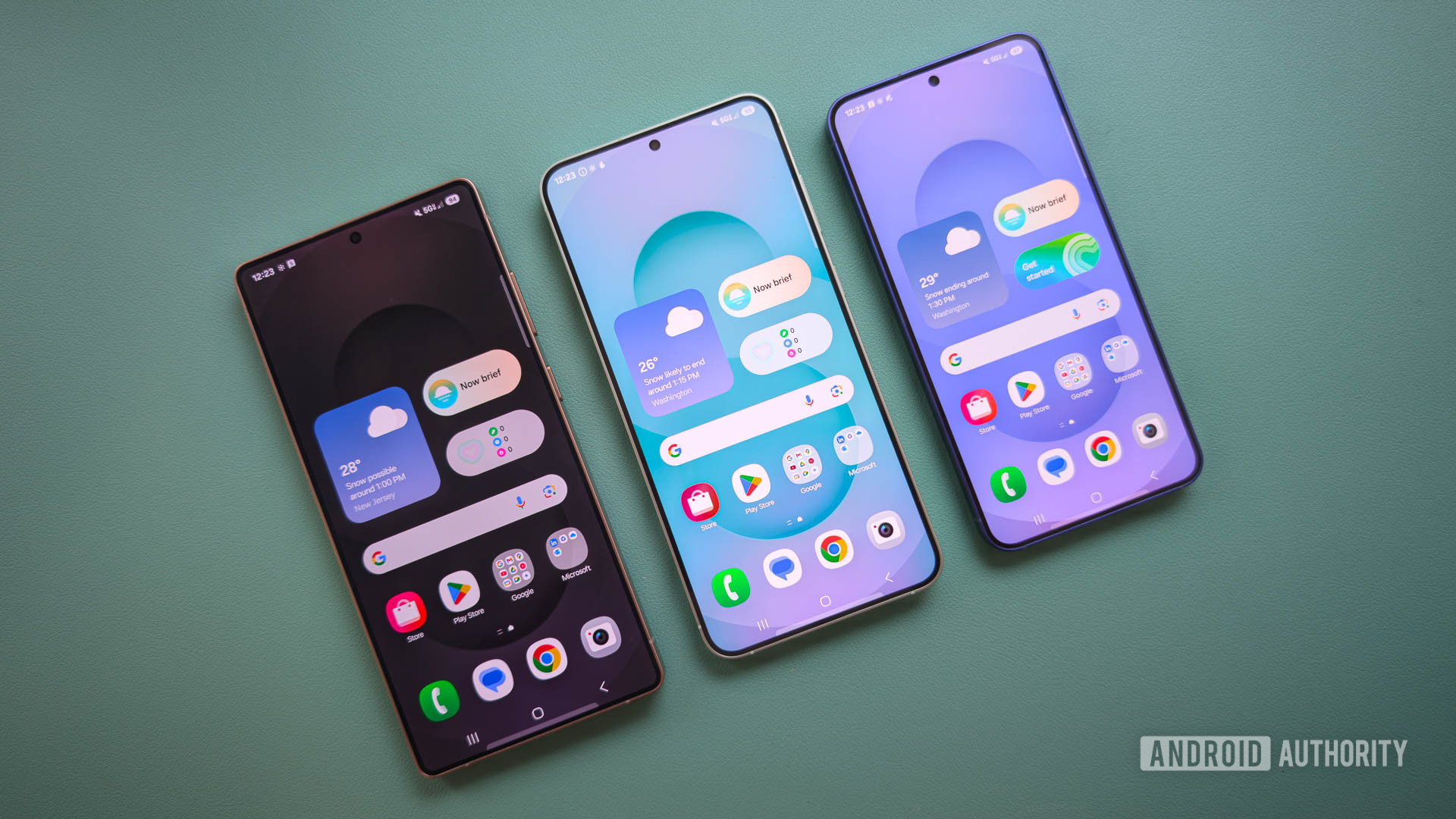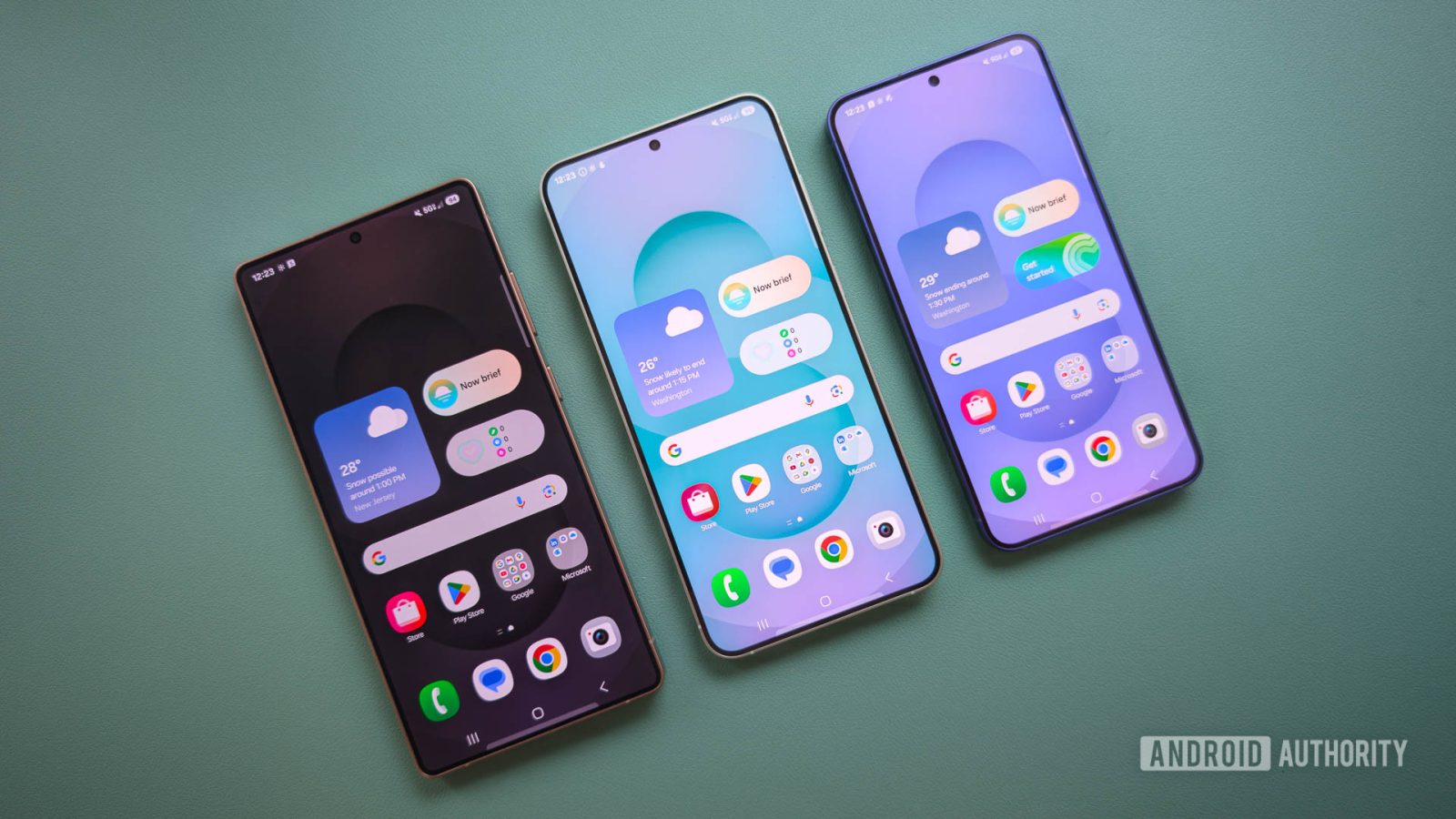
C. Scott Brown / Android Authority
The entire Samsung Galaxy S25 series promises the best performance ever seen from a smartphone thanks to their Qualcomm Snapdragon 8 Elite for Galaxy processor. However, we know that Qualcomm’s latest chip can run a tad on the warm side, so can the compact Galaxy S25 really keep up with the larger and presumably cooler Galaxy S25 Ultra? I’ve run our usual benchmarks on all three units to see if any customers stand to miss out or if it’s all even-steven.
You’re reading an Authority Insights story. Discover Authority Insights for more exclusive reports, app teardowns, leaks, and in-depth tech coverage you won’t find anywhere else.
We’ll start by looking at CPU performance via GeekBench 6. Despite running the test three times, our average single-core CPU score, in particular, is a little bit lower on the regular Galaxy S25. We’re talking about 9% slower than the Plus and 12% behind the Ultra. Temperatures are the most likely culprit, with clock speeds possibly dipping lower towards the end of the test to keep things cool, but that doesn’t bode well, given GeekBench 6’s relatively short run time. Thankfully, multi-core scores are closer, with just a 2% gap between the smallest and biggest models, so real-world app performance is likely to feel identical.
This is reflected in our PCMark Work 3.0 test, which also shows all three devices to be within a percentage point or two of each other. My takeaway is that all three phones will perform very well for typical daily tasks that require short bursts of single-core and longer periods of multi-core processing. There’s certainly nothing to suggest that the regular Galaxy S25 has a poor performance next to its larger siblings, despite the slightly iffy single-core CPUI result. Let’s see if temperatures are more of an issue when running these three phones through some GPU stress tests.
No surprise: the Galaxy S25 Ultra offers the best cooling and performance.
Across all our stress test runs, there’s one clearly identifiable trend: the Galaxy S25 Ultra is by far the coolest of the three phones. Its temperatures peaked at 42.3°C compared to 44.8°C and 46.2°C for the Galaxy S25 and S25 Plus, and it idles significantly cooler as well. We noticed a similar trend last year, with the S24 and S24 Plus ending up with higher temperatures than the Ultra during stress tests.
The Galaxy S25 Ultra has a 40% larger vapor chamber compared to last year’s model, which shaves a degree or so off its temperatures while accommodating the faster and hotter 8 Elite. It’s clearly much better than the cooling setup in the regular models. This leaves it with a bit more room to keep performance up when pushing the GPU hard for long periods of time, which certainly makes it the better choice of the three for gamers.
In terms of performance, the Ultra is the model to beat. It has a roughly 6% higher peak score than the regular S25 in 3DMark’s Wild Life Extreme and Solar Bay tests, with the S25 Plus falling between the two. That’s not going to be a night and day difference to game frame rates, but it does mean it stands a better chance of tightly locking to 60fps in the most demanding Android games.
Furthermore, the Ultra sustains higher performance levels during higher temperatures than both of its smaller siblings, reaffirming it as the best pick of the three for longer gaming sessions thanks to its larger and improved vapor chamber. That said, none of these three are particularly brilliant when it comes to sustained performance over these stress tests.
Which Galaxy S25 should I buy?
C. Scott Brown / Android Authority
If you’re wondering which phone to pick from a pure performance perspective, then price order dictates the standings. The regular Galaxy S25 is a tiny bit slower than its bigger siblings in CPU and GPU tests, while the Ultra is by far the superior model in terms of cooling, with the Plus nestled somewhere between (but closer to the regular S25).
The Galaxy S25 is the slowest of the three, but it’s far from a slouch.
However, that’s probably an unfair way to frame these three. Aside from stress testing, which puts the phones under more stress than most users ever will, there’s virtually nothing to tell between the three. Even then, the entire Galaxy S25 series boasts a substantial jump in processing power from their predecessors without any signs of overheating issues we’ve seen from other phones, which is perhaps the most important point here.
In any case, performance certainly isn’t the only factor in determining whether an upgrade to the S25 is worthwhile. But with much of the other hardware remaining unchanged from the previous year, it’s probably a bigger factor than it has been in years goneby.
See price at Amazon
11%off
Samsung Galaxy S25
12GB RAM
Vastly improved software
7 years of support
See price at Amazon
9%off
Samsung Galaxy S25 Plus
Snapdragon 8 Elite power
12GB RAM
7 years software support
See price at Amazon
13%off
Samsung Galaxy S25 Ultra
100x zoom
Big battery
7 years software support

Leave a Reply